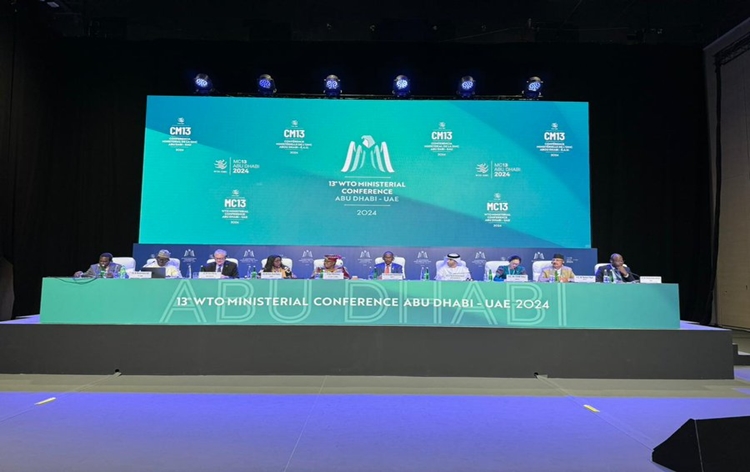
WTO announces new rules to streamline the international trade in services
NEW DELHI : The 13th Ministerial Conference (MC 13) of the World Trade Organization announced new rules to streamline the international trade in services. These regulations, which apply on a Most Favored Nation (MFN) basis, aim to make authorization processes more transparent and accessible, with commitments to gender equality.
However, only 72 out of the WTO’s 164 members are a party to the agreement.India and South Africa were among countries that did not sign this agreement.
Indian experts said as a multilateral trade body, the WTO should focus on core issues like WTO reforms, reviving the appellate body, agriculture reforms, etc.
The regulations are a response to the bureaucratic challenges faced by businesses in cross-border service trade, aiming to simplify procedures and promote equal opportunities for service suppliers worldwide.
“While details of the Agreement are still awaited, the new agreement looks like plurilateral agreement, where not everyone is a party. India and South Africa have not signed this Agreement. WTO, being the top multilateral trade body should rather focus on core issues of interest to all members and not of a few,” said Ajay Srivastava, the founder of Global Trade Research Initiative (GTRI).
Meanwhile, global leaders at the meeting, being held in Abu Dhabi, on Tuesday argued for the need to reduce the trade in plastics citing greenhouse emissions from its use. They also emphasized the need to rationalize, phase out or eliminate harmful fossil fuel subsidies through existing or new mechanisms.
The global trade in plastics reached over $1.2 trillion during 2022, as per UN data, with the agency predicting that 19% of greenhouse gas emissions would come from plastics by 2040.
As many as 78 members — excluding India — are participating in the Plastics Pollution Dialogue, representing 85% of the global trade volume.
The Dialogue on Plastic Pollution and Environmentally Sustainable Plastics Trade (DPP) seeks to get WTO members to reduce plastics pollution and promote environmentally sustainable trade in plastics.
During the dialogue, members of the participating countries stressed increasing transparency of trade flows of plastics, given that single-use plastics, plastic films and hard-to-recycle plastics as well as those embedded in traded goods are not captured by trade data.
Though India is not part of the group, the country has taken several measures to reduce plastic usage, including imposing a ban on single-use plastic in 2022. As things stand, India is the fifth-highest generator of plastic waste in the world.
At the conference, 49 members, excluding big economies like India, the US and China, also discussed a fossil fuel subsidy reform (FFSR) initiative.
The initiative builds on the WTO members’ commitments under Sustainable Development Goal 12(c) of the 2030 Agenda and in the context of the Paris Agreement on Climate Change.
It also contributes to efforts to transition from fossil fuels in energy systems.
Total fossil fuel subsidies amounted to about $7 trillion, or about 7.1% of global GDP in 2022, according to a working paper released by the International Monetary Fund (IMF) last year.
While India ranked fourth among the top five nations in fossil fuel subsidies with around $350 billion, China occupied the top place, followed by the US and Russia. The European Union and Japan shared the fifth spot.
While the G20 countries have committed to reducing fossil fuel subsidies to achieve the goals of energy security and climate protection, emerging economies like India rely largely on fossil fuels for a large chunk of their energy needs.
India has pledged to reach net zero by 2070 at the COP26 climate conference in Glasgow in 2021, which means it will be able to balance the amount of greenhouse gas (GHG) it produces with the amount removed from the atmosphere.

